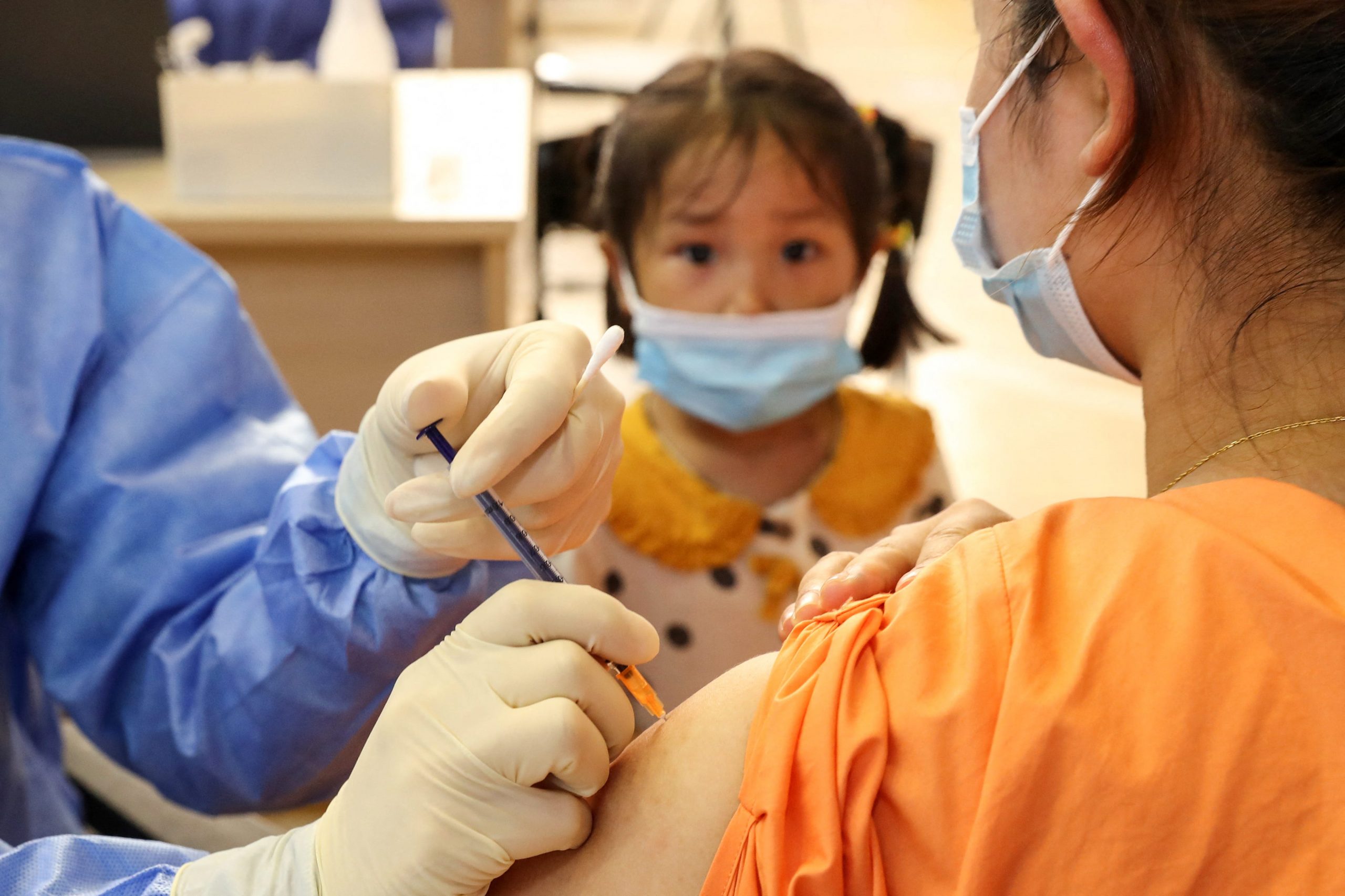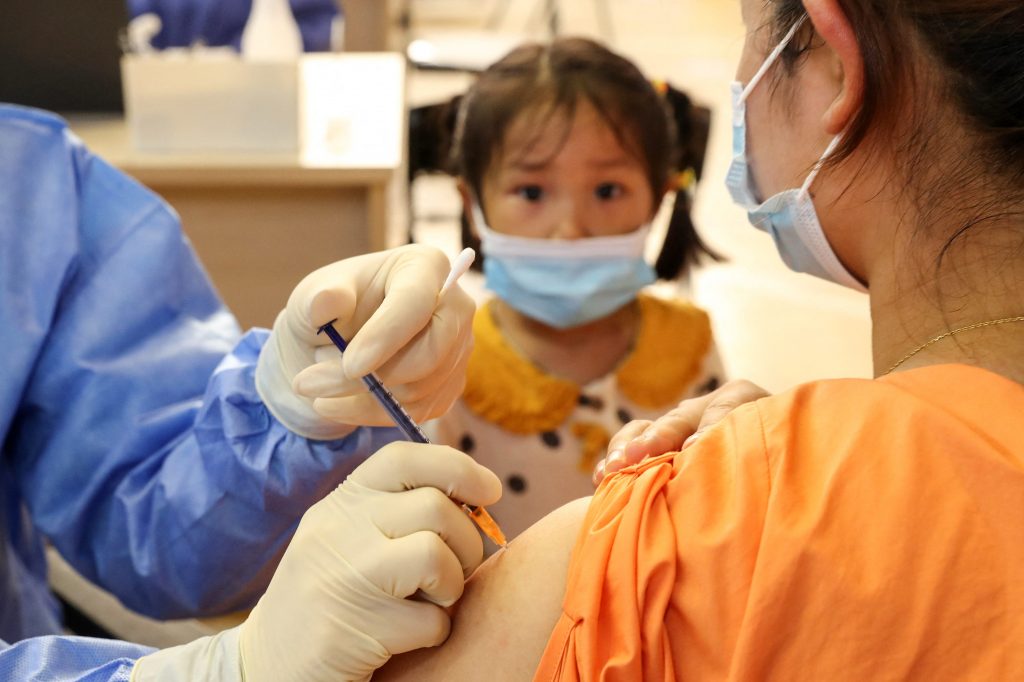
STR/AFP via Getty Images
- Counties in at least 12 of China's 22 provinces have announced new surveillance and restrictions measures for unvaccinated people.
- Anyone not vaccinated will be banned from dozens of public areas and institutions in these regions.
- One county even said its government agencies would stop paying unvaccinated employees.
- Visit Insider's homepage for more stories.
Some Chinese counties will begin barring unvaccinated people from schools, hospitals, supermarkets, and other public places by late July or early August.
Local counties in at least 12 of China's total 22 provinces announced new measures that will ramp up surveillance and restrictions on unvaccinated residents whenever they try to enter dozens of common areas. Other restricted places include gyms, hotels, internet cafes, gas stations, and banks, though the exact list varies from county to county.
Getting vaccinated is the "duty and obligation" of every citizen, said one notice. It also pointed to a "severe and complicated" pandemic situation overseas.
Most of these counties said that the onus would be on the management of the various schools, public areas, and institutions to enforce their restrictions.
Some of them, such as Luzhou city in Sichuan province, only mandate that unvaccinated people provide personal details and contact information when entering such places, adding that they should be encouraged to get their shots.
Others have declared full bans on those who have yet to receive their jabs, like Yuehu district in Jiangxi province.
One county, Tanghe county in Henan province, said its government agencies would stop paying employees if they fail to get vaccinated, reported local media.
The announcements have only been made on the local level so far; Beijing still has not made vaccines mandatory nationwide. But the new restrictions are in line with China's push to reach an 80% vaccination rate - a herd immunity goal that its state media has discussed frequently.
China reports that it has issued 1.4 billion vaccine doses so far, almost enough to give the entire population a single shot, though it is unclear how many people have received two doses. Most of these shots have been the locally-produced Sinovac or Sinopharm vaccines.
The rate of COVID-19 infections has sharply declined since hitting a peak of 31,333 daily infections in February 2020, mostly owing to swift lockdowns of cities that see small outbreaks.
